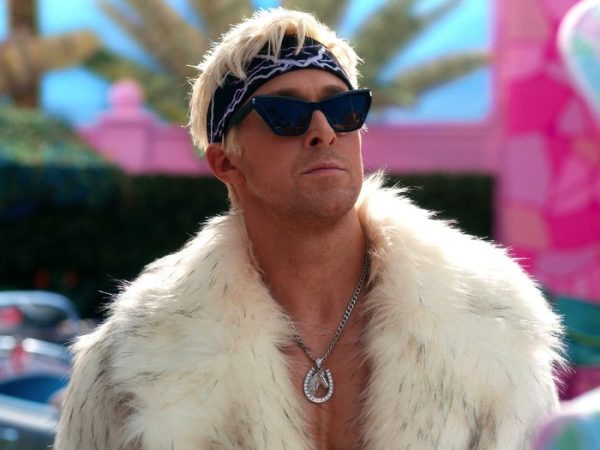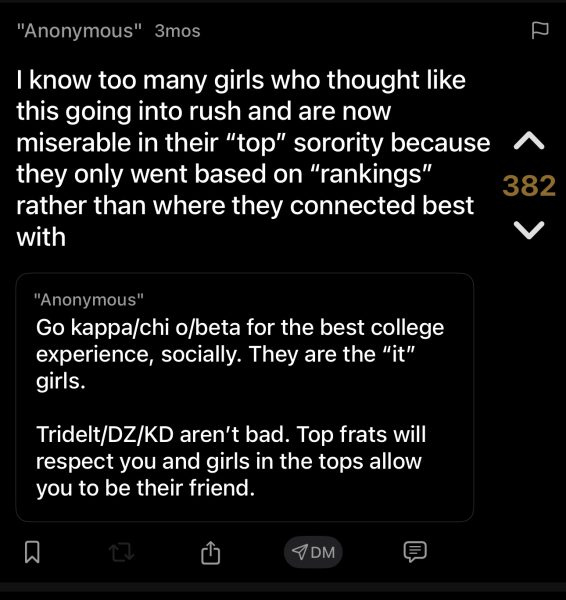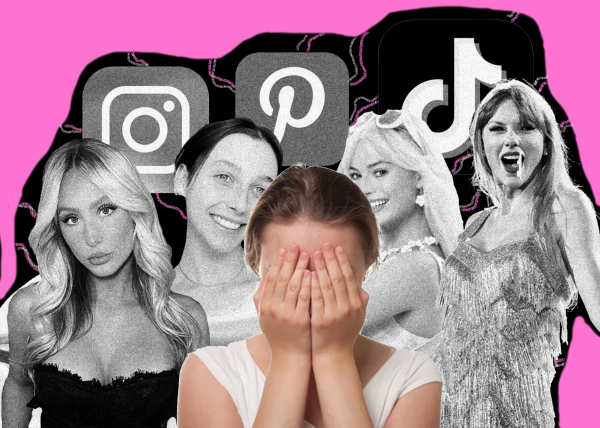Guilt should not dictate the enjoyment of art
If a piece of art means something to you, let it
Films like “Good Will Hunting” could be tainted by the involvement of figures like Harvey Weinstein, but sometimes, you can just enjoy art, writes Conor Metzger.
January 19, 2023
Whether it’s Generation Z men expounding on how “College Dropout” is the greatest album of all time or middle-aged moms who claim “The Ellen Degeneres Show” saved their lives, our culture is in the midst of a great debate on whether it is possible to truly “separate the art from the artist.”
This discourse has been ramping up as the age of information has brought the personal lives of all of our favorite artists to the forefront. With a few clicks, we can see the details of their past relationships, who they voted for in the past election or even that one tweet they thought was funny 10 years ago. The question is, when we deem an individual “problematic” because of this information, are we able to still enjoy the art that they have produced?
A common refrain is that an artist is a “product of their time.” While I think this is another conversation, more and more singers, actors, writers and other artists of today are being found to have made racist remarks in the past, had a history of sexual violence or exhibited some other behavior that is presently inexcusable. With all this information coming forward, we need to analyze whether the enjoyment of their art is okay or if we need to look elsewhere for the feelings that the art may bring us.
I got into this debate last year after comedian Louis Alfred Székely, better known as Louis C.K., won a Grammy award for his comedy album “Sorry.” I’ve been a fan of C.K. for most of my life, finding laughter in his stand-up career and awe in his work in television — “Horace and Pete” entirely shaped my understanding of what TV can be. You can then imagine my shock when, in 2017, it was revealed that C.K. had taken advantage of numerous women by engaging in improper sexual conduct. I stopped watching his specials or reruns of “Louie” on FX for a couple of years, because I could no longer appreciate his gift of comedy now that I was aware of his immoral behavior.
Jumping forward to the present, both of C.K.’s post-2017 comedy albums have been nominated for Grammy awards, and he is still selling out Madison Square Garden while also making acclaimed movies. In light of this, I have to wonder if it is okay for me to buy a ticket to go see C.K. live. Can I purchase his new comedy specials? Can I even rewatch shows I have seen before?
I initially considered the fact that C.K. apologized for his behavior and also received what some would consider to be fair punishment in his ostracization from the Hollywood community. I think that he understands what he did was wrong, and if I personally can accept that truth, then it is okay for me to enjoy the work of someone who I have followed since I was a child. But if you were never a C.K. fan and are apprehensive about getting into his art now, then that should also be okay. I don’t think these types of choices make one person more moral than another, but rather these choices concern being true to oneself.
We need to recognize that there comes a point in which you cannot deny the influence an artist has on you, and you would actually be lying to yourself if you claimed that a piece of art means nothing and should be boycotted. Another example is the number of films produced by Harvey Weinstein. From “Good Will Hunting” to “Inglourious Basterds,” Weinstein’s name is attached to many influential movies in the past few decades. His role in producing nearly all of Quentin Tarantino’s movies alone has helped establish a whole new generation of films. We see this with the recent experimental Netflix show, “Kaleidoscope,” which is heavily influenced by the Weinstein-produced “Pulp Fiction.” Knowing this, it would be unreasonable for the creators of “Kaleidoscope” to lie about its influences from other works of art or to distance themselves from the work that came before.
If a piece of art means something to you, let it. You shouldn’t push it away because of unrelated behaviors from its creator. But this also leads into the question of whether the art is actually symbolic of the artist’s reprehensible views. Neither C.K. nor Weinstein created art that was representative of the behavior of which they would later be accused, but other works such as James Cameron’s “Avatar” have been called into question for depicting racist stereotypes of Native Americans and portraying indigenous cultures unfairly in return for capital gain.
In an example like this, we need to be more critical of the art in question and analyze why it is that we like it. I’m a fan of the Avatar movies, and I contributed to the more than a billion dollars made at the box-office by “Avatar: The Way of Water.” While watching both these movies, I did not immediately recognize some of the “racist” undertones in the film. Knowing them now, I think that I need to decide if I should be contributing to the financial success of the movie. I also see issues in the work of Michael Jackson, as many of his songs contain pedophilic undertones. Because of this, I have effectively “boycotted” his music because, in his case, I cannot separate the art from the artist.
On the other hand, when I watch a Woody Allen movie or listen to the music of Morgan Wallen, I can appreciate their art for what it is and take the good feeling that I get from that. If I am able to, I can be okay with separating the product from the producers. I can’t tell you how many times I have watched “Annie Hall” and experienced the relationship between Alvy Singer and Annie Hall without thinking of how Allen may have treated his wife. I can listen to “More Than My Hometown” a dozen times and be transported back to my smalltown childhood while admittedly forgetting Wallen’s liberal use of the n-word. That is just being true to me, but I understand that some may not have those same feelings about the art and may not be able to partake in it.
As college students, we are constantly thinking about how we can be better people. While this can be a noble pursuit, being untrue to who you are and what has shaped you leads to a loss of your sense of self. If you can experience something and enjoy it, and if the art itself is not problematic, then please, experience it. If the art does have issues, then maybe take a look at why you like it. Sometimes, being true to ourselves means recognizing our own problematic behavior and interests.






















